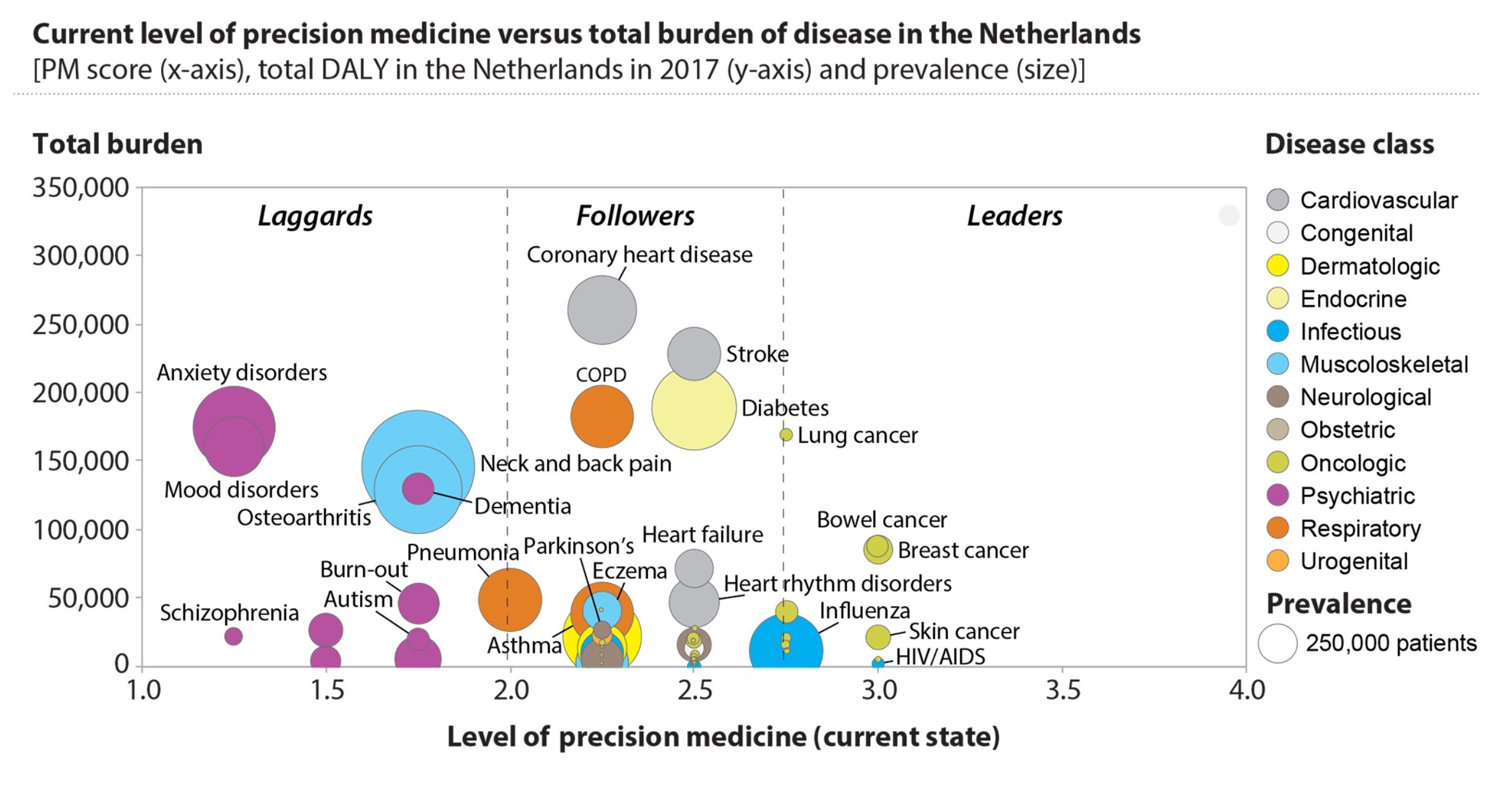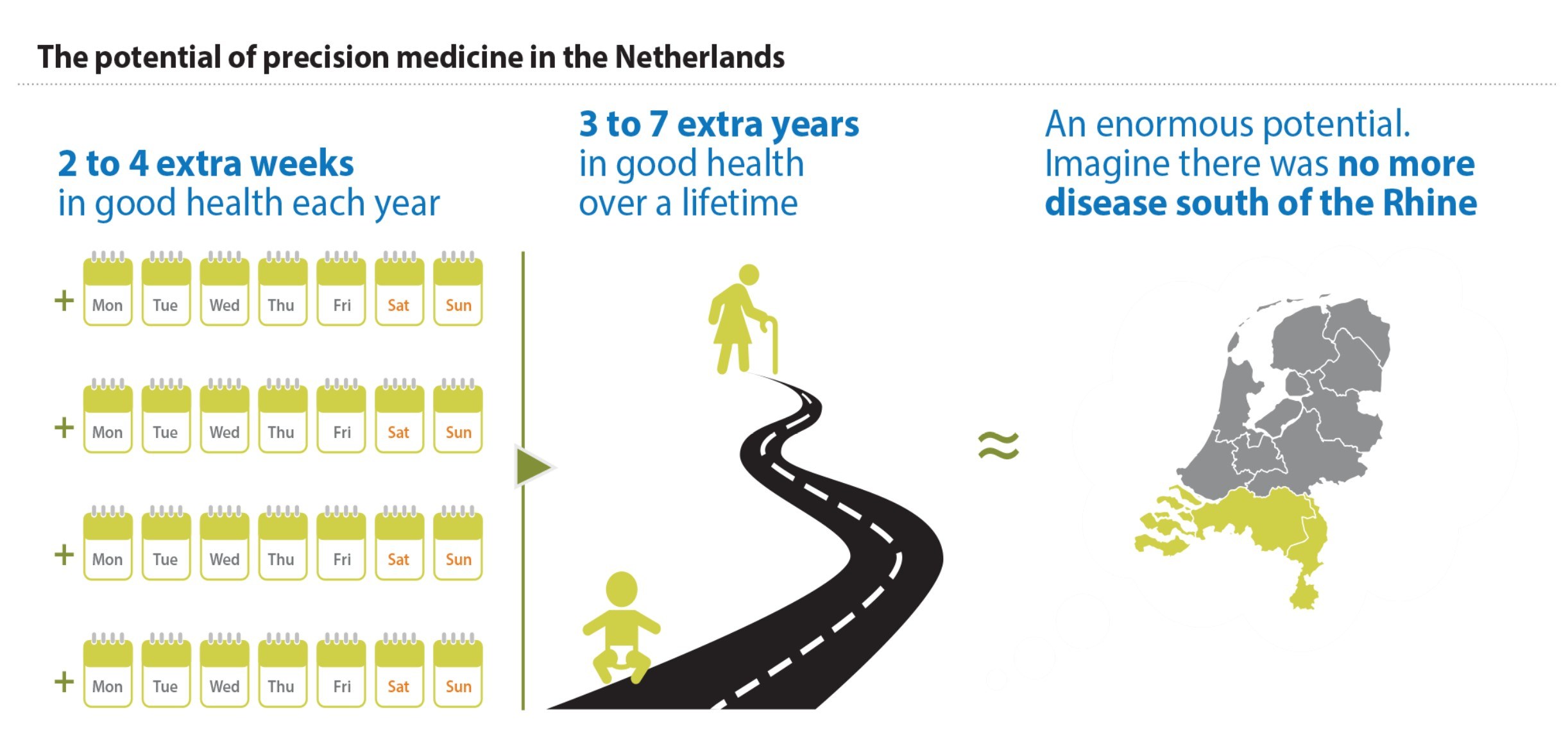n=1, a new paradigm
The Dutch healthcare sector is undergoing a transformation. Instead of the exact same treatment for everyone, we’re moving towards care that’s specifically tailored to individuals. This type of care is called “precision medicine”.
From a technological perspective, the transition to precision medicine is gaining momentum: diagnosis and treatment options that focus on individual patient characteristics are becoming more precise and more widely available. However, the problem is that the healthcare system is lagging behind in these developments, and as a result, these innovations aren’t being used enough in practice. With the study “n=1, a new paradigm”, Gupta Strategists is researching the potential healthcare gains of more widespread use of technological innovations, and the challenges that stand in the way of getting there.
The research shows that wider use of existing technologies could allow us to gain three to seven years of life in good health – years that are currently lost due to sickness or premature death. Cancer is currently leading the way towards greater adoption of precision medicine, followed by chronic diseases such as stroke, diabetes and COPD. Psychiatric disorders are lagging behind, despite the high disease burden among the Dutch population.

A comparison of the current diagnostic and treatment standards with the most modern diagnostic and therapeutic possibilities shows that progress in the field of precision medicine is expected across all disease categories. This progress could lead to a reduction in disease burden of 15-30%, which translates to a gain of three to seven healthy years of life. To put these numbers in perspective, they mean that the area of the Netherlands south of the Rhine would currently be completely disease-free.

However, there are some barriers standing in the way of these healthcare gains. Specifically, the barriers are related to 1) generating burden of proof for precision medicine, 2) collecting data, 3) combining and using data, 4) translating data into decision support, 5) increasing trust among the general population and medical practitioners, and 6) connecting precision medicine to economic frameworks within the healthcare sector.
In the Netherlands, many (often small) initiatives have already been set up to help break through these barriers. Gupta has included overview of these initiatives in this study. Collective action is required to create a sustainable system that’s receptive to precision medicine. For example, our society as a whole must make secure, large-scale data collection a higher priority. It is also essential for Dutch citizens and healthcare providers to be convinced of the value of sharing personal data. The government also has an important role in to play in terms of adapting regulations and economic frameworks to better align with the dynamic, personalized nature of precision medicine.
“It is time for collective action to harvest the value of precision medicine.”
About the study
The study “n=1, a new paradigm” was commissioned by the PHC Catalyst Alliance and conducted by Gupta Strategists. The PHC Catalyst Alliance consists of innovators in the healthcare sector from a variety of disciplines, and aims to accelerate the transition to precision medicine using their combined expertise. For more information about the alliance, please visit www.phc-catalyst.nl.
This study was financed by Roche.
Download the full report 'n=1, a new paradigm' here »